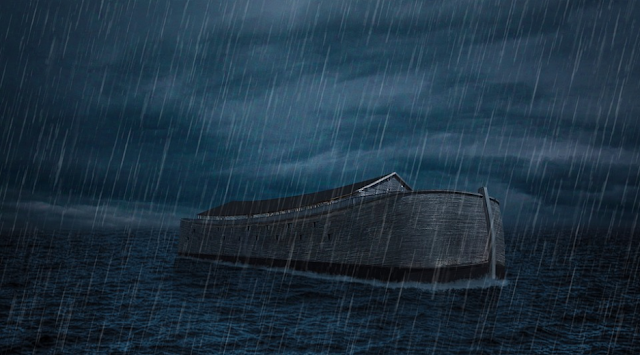Let's get right to it. Every ancient civilization in human history has a legendary tale of a great flood that came over the Earth and washed away civilization, leaving only a few survivors.
The Great Flood Accounts
In many of these stories, a human guardian was chosen by the "gods" to assemble all the animals of land and collect them into a seafaring vessel, which would protect them from the devastating flood. The most notable account describes Noah in the Bible whom God placed in charge of saving the animals of the Earth by building an ark.
But was Noah's account the only one?
Great Flood Myths of Ancient Greece
The ancient Greek societies had three tales that spoke of a great flood. In Laws, Book III, Plato spoke of the Ogyges Flood, which he dates back to 10,000 years before his time. However, the myth with the most relevance here is the Deucalion Great Flood.
In Bibliotheca, Deucalion, the son of Prometheus, learns that the gods intend on destroying mankind by releasing a great flood onto the land. Advised by his father, Deucalion builds a chest and floats in it with his wife, Pyrrha for 9 days and 9 nights. They both survive the flood and later are allowed to create humans through the will of Zeus by throwing stones. Every stone Deucalion threw became a man. Every stone Pyrrha threw became a woman.
This is the tale told to explain the existence of mankind after the great flood. The word "people" in Greek is Laos, which is derived from the term Lass or "stone."
The Gret Flood in The Epic of Gilgamesh
In the Sumerian Epic of Gilgamesh, the myth of a great flood is retold in several tablets, most notably in tablet XI wherein speaking with Utnapishtim he is told that the gods intended on sending a great flood to the land. He was instructed to build a boat and was given precise measurements much like Noah was given in the Bible.
Utnapishtim boarded the vessel with his wife, family, craftsmen and all of the animals in the field. The sailed for 6 days and 6 nights. After his boat is stranded on a mountain, Utnapishtim releases a dove, a swallow and a raven; when the raven does not come back, he releases all the animals in the ark because he knows the bird found land.
When all ends, the god who released the flood, Enlil, arrives angry that survivors remained. He was chastised for serving a cruel punishment and Utnapishtim and his wife are taken aboard the vessel of the gods and blessed. They were given immortality and transported to "the mouth of rivers" where they were supposed to reside for eternity.
Aboriginal Tales of the Great Flood
Aboriginal civilizations have a few myths regarding a great flood. One was centered around children who saw an owl in a tree and took it down and plucked its feathers. They then shoved a grass reed in its nose and treated it very cruelly. The bird later flew to the heavens without wings and showed the Great Father what had happened to it.
In response, the Great Father chose to drown all the people in the land. Far away there was a man in a canoe braving the sea with his wives and a dog, a bird with a leaf in its mouth showed them the way to a high mountain where other survivors were.
Noah's Ark and the Great Flood
In the tale of Noah's Ark, the Lord decides to ravage the land with a great flood as punishment for mankind's behavior. He instructs Noah to build an Ark and gives him precise measurements for its construction. He instructs Noah to take two of each animal in with him and his family in his ark when the great flood arrives.
It rains for 40 days and 40 nights, after which, Noah releases a dove and it returns with some kind of foliage and it is a sign that it has found land.
Similarities in Great Flood Versions in Ancient Civilization
In most tales of a great flood, the reason for the flood is always God's displeasure with mankind for their sinful behavior or cruelty to the animals of the god(s).
The closest version of Noah's Ark is the story of Utnapishtim in the Epic of Gilgamesh. In both, the Lord instructs them to collect animals and build a vessel to hold them and their families.
Another close similarity is the mention of the release of birds and their return or lack thereof that leads the protagonist to believe the danger is over.
What do you think? Can all ancient civilization tales of a great flood be mere coincidence, or is this a sign that something more connected is at hand?
We will see you next time on Alien and Unexplained.

No comments:
Post a Comment